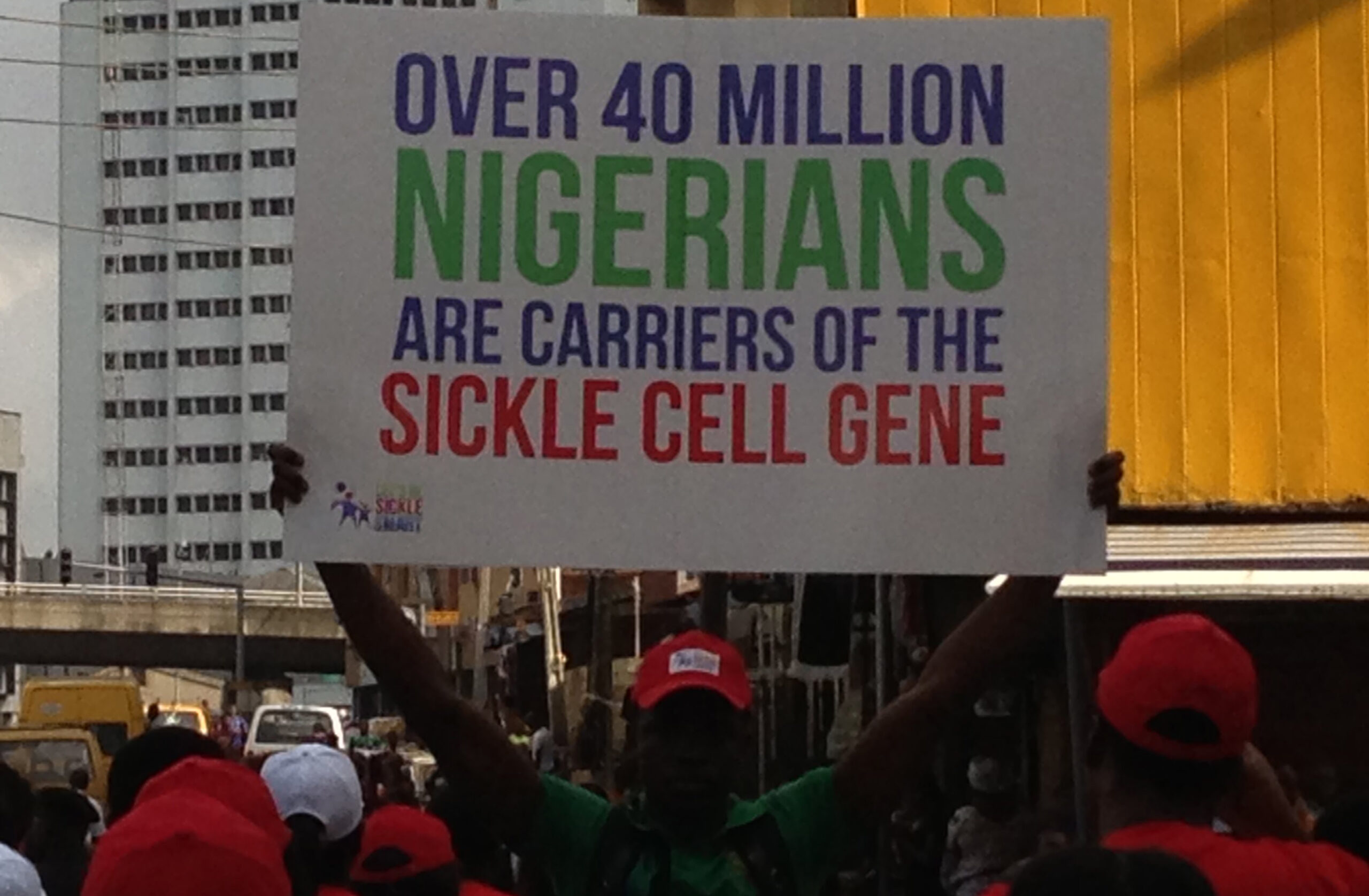Aminu Muhammad lives daily, understanding that heart-wrenching pain is not far away. He was seven when he was diagnosed with sickle cell amenia, a life-threatening genetic condition.
His condition saddened his parents, but they could do nothing about it.
For Muhammad, every morning he wakes up is a victory.
Not wanting people to know about his condition, his parents kept him indoors and employed a lesson teacher for him at home. They feared he was weak, and allowing a child like him to go out was risky.
“They believed the condition may trigger any moment, and if there is no relative around, anything could happen,” Muhammad said.
Nigeria is the epicentre of sickle cell disease, and Muhammad is only one of the 2 to 3% of the population suffering from the disease. While government and non-profits have ramped up efforts to spread information about sickle cell, the efforts have yet to reach many poor rural communities where marriage happens without recourse to testing for genotype- sickle cell anaemia still occurs in nearly 2% of all births.
At 12, Muhammed told his parents he could no longer take the isolation. He felt alone and unwanted by his parents and constantly wondered why his parents hid him from the world. His parents caved in and enrolled him in school.
But at school, students and teachers bullied and stigmatised him. Muhammed said he was called names like names like “The slim one” or “Sikla”, which hurt him.
Now 22, Muhammad said he understands better what is happening to him and feels lucky that his sibling, Aisha, had always supported him, even while they were still kids.
A life of medication
Sanusi Abubakar, a haematologist at General Specialist Hospital, Maiduguri, Borno State, said SCD is a genetic condition that blocks blood flow and involves constant pain known as vaso-occlusive crises.
“When both the husband and wife have the sickle cell trait (AS genotype), there is a 25% chance that their child will have a normal genotype (AA), a 50% chance of having the sickle cell trait (AS), and a 25% chance of having sickle cell disease (SS)” Abubakar told Prime Progress.
Abubakar stressed that the condition comes with symptoms like pale skin, leg ulcer, stroke, swelling in some body parts, and kidney failure. He warned that it could cause acute chest syndrome, a lung condition that results in pneumonia.
To stay alive, people with SCD have a daily medication regimen to manage and alleviate symptoms related to the condition effectively.
The daily medications serve several crucial purposes. Firstly, they help manage pain during sickle cell crises, which can be excruciating.
Secondly, to prevent complications from the disease, people with SCD may take antibiotics and other preventive treatments to reduce the risk of infections, stroke, acute chest syndrome, and organ damage.
Additionally, some individuals may require regular blood transfusions to improve oxygen delivery to tissues and prevent further complications.
Alongside medication, patients may receive supplemental therapy, including vitamins and nutrients, to support overall health and address potential deficiencies.
That was also the case for Muhammed, who said he sometimes felt frustrated with constantly taking medication.
“There were times that I stopped liking the medications,” Muhammad said, but his parents insisted, “they kept forcing me. Telling me that it’s good for me,” he said.
As he matured, Muhammed went to the African Institute of Science Administration and Commercial Studies or IAEC in Tog for university, away from the watchful eyes of his parents, and sometimes it was tough for him.
“If I didn’t find the right medications, it usually takes three to seven days to get better, which on many occasions made me miss lectures, tests, and even exams,” he says. “The condition also took a toll on my mental health,” he said.
Living live
Now a graduate and back in Nigeria, Muhammed jogs every morning. He loves eating Garau Garau, Dan Wake, and Jollof rice with beans and stew.
He trades cryptocurrency and does foreign currency exchange and digital marketing, but as he navigates through every day, sometimes the pain comes knocking. “I face so much pain, especially at night. Sometimes, I’m sleepless and experience a severe fever,” Muhammad told Prime Progress.
Muhammed, who is preparing for marriage, said he ensured he didn’t have to make the mistakes his parents made. “I’m SS and recently found a lady who is AA,” he said.
He says the best way to manage the condition in a developing country like Nigeria is to do an appropriate genotype test before marriage. If the results show that the intended couples are both AS, the couples should cancel the marriage.
On days like today, where there is no battle on his plate, the graduate of Information Technology is focused on growing his business. “I want to be a successful entrepreneur who can assist children with the same condition. I want to see that I continue providing for my parents and the people around me,” Muhammed said.






